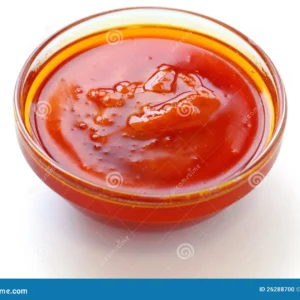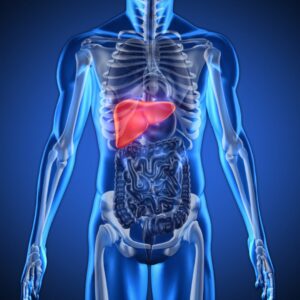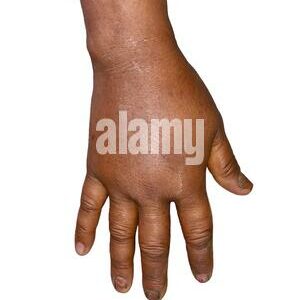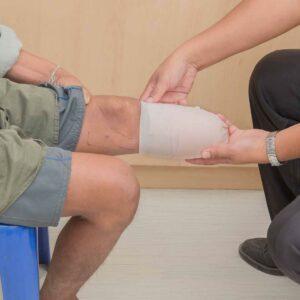Internal bleeding is a serious medical condition that occurs when blood leaks from blood vessels inside the body. Unlike external bleeding, where blood escapes through a break in the skin, internal bleeding can be more challenging to detect and treat. It can result from various causes, including trauma, medical conditions, or medication side effects. Understanding the symptoms, treatments, and potential natural remedies for internal bleeding is crucial for ensuring timely medical intervention and recovery.
Symptoms of Internal Bleeding
Recognizing the symptoms of internal bleeding is essential for prompt medical attention. Symptoms can vary depending on the location and severity of the bleeding but commonly include:
- Pain: Sudden and severe pain in the affected area. Abdominal pain is common in gastrointestinal bleeding.
- Swelling and Bruising: Swelling and unexplained bruising in specific areas, indicating blood accumulation under the skin.
- Dizziness and Fainting: Significant blood loss can lead to a drop in blood pressure, causing dizziness or fainting.
- Weakness and Fatigue: Blood loss reduces the oxygen supply to tissues, resulting in weakness and fatigue.
- Shortness of Breath: When bleeding occurs in the chest or lungs, it can lead to breathing difficulties.
- Nausea and Vomiting: In cases of gastrointestinal bleeding, vomiting blood or having black, tarry stools are common symptoms.
- Shock: Severe internal bleeding can lead to shock, characterized by rapid heartbeat, shallow breathing, and confusion.
Causes of Internal Bleeding
Internal bleeding can result from various causes, including:
- Trauma: Injuries from accidents, falls, or blunt force can damage blood vessels and organs.
- Medical Conditions: Conditions like ulcers, aneurysms, or cancer can lead to internal bleeding.
- Medications: Blood thinners and certain medications can increase the risk of bleeding.
- Surgical Complications: Post-surgical bleeding is a potential complication of any surgery.
Diagnosing Internal Bleeding
Diagnosing internal bleeding often requires medical imaging and tests. Common diagnostic methods include:
- CT Scans and MRIs: Imaging techniques to visualize internal structures and detect bleeding.
- Ultrasound: Used to detect bleeding in the abdominal area.
- Endoscopy: A procedure to examine the gastrointestinal tract for sources of bleeding.
- Blood Tests: To assess blood loss and detect anemia.
Medical Treatment for Internal Bleeding
The treatment of internal bleeding depends on its cause, location, and severity. Immediate medical attention is crucial, and treatment options include:
- Surgery: To repair damaged blood vessels and organs.
- Blood Transfusions: To replace lost blood and improve oxygen delivery to tissues.
- Endoscopic Procedures: To control gastrointestinal bleeding.
- Medications: To reverse the effects of blood thinners or treat underlying conditions.
Natural Remedies and Supportive Care
While internal bleeding requires medical intervention, certain natural remedies and supportive care measures can aid recovery and overall health:
- Rest and Immobilization: Limiting movement can prevent further injury and promote healing.
- Hydration: Staying well-hydrated supports overall health and recovery.
- Balanced Diet: Eating nutrient-rich foods, particularly those high in iron and vitamins, can aid in recovery.
- Herbal Remedies: Some herbs, like turmeric and ginger, have anti-inflammatory properties that may support healing (consult with a healthcare provider before use).
What to Do if It’s Too Late
If internal bleeding is severe and treatment is delayed, it can lead to life-threatening complications. In such cases:
- Call Emergency Services: Immediate medical attention is vital.
- Provide Basic First Aid: Keep the person calm and still to prevent further injury.
- Monitor Vital Signs: Check for breathing, pulse, and consciousness.
- Prepare for Shock: Lay the person flat, elevate their legs, and cover them with a blanket to maintain body temperature.
Conclusion
Internal bleeding is a medical emergency that requires prompt recognition and treatment. Understanding the symptoms and seeking immediate medical help can be life-saving. While natural remedies and supportive care can aid recovery, they are not substitutes for professional medical treatment. Always prioritize seeking medical attention for internal bleeding to ensure the best possible outcome.







